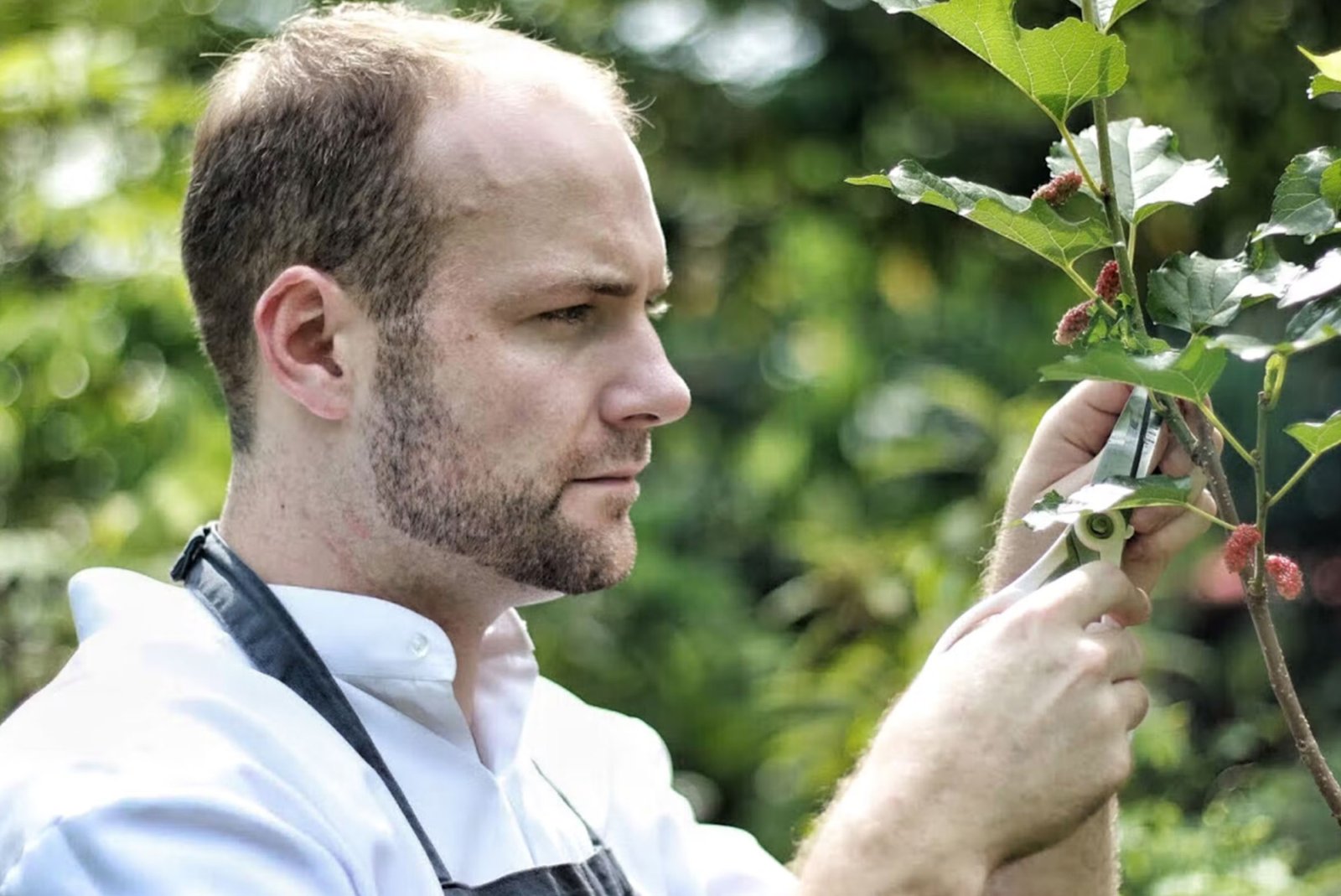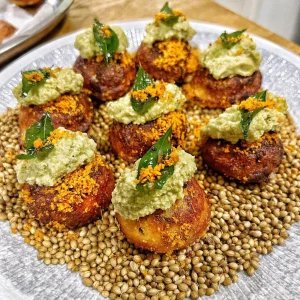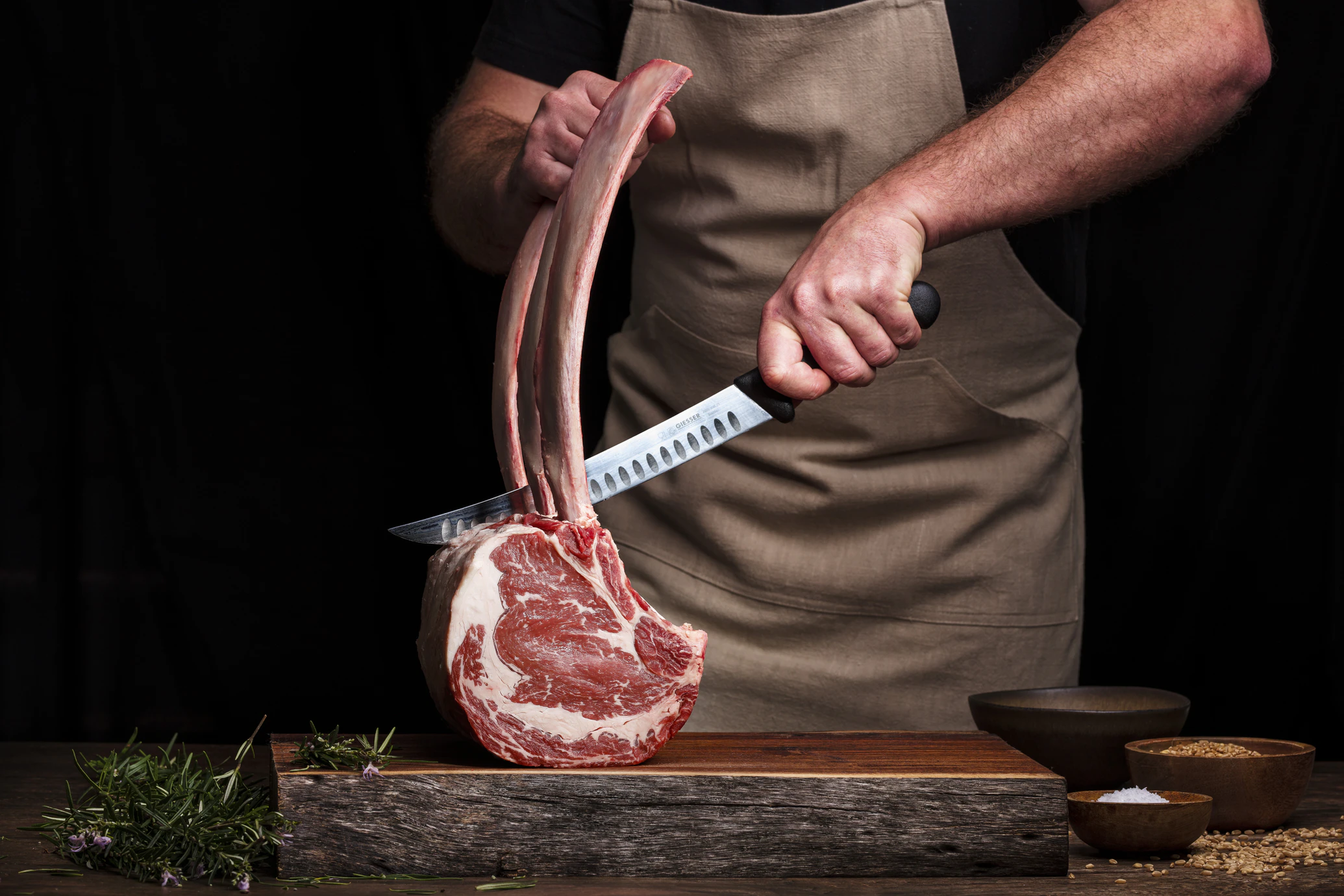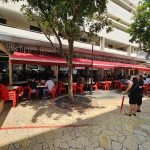
There was once a time when restaurants didn’t think twice about sustainability. Serving up good food meant cutting out the best part of a certain ingredient and tossing out the rest.
All that has changed. A new breed of chefs who are concerned about the environment as much as animal welfare have emerged in the last few years – all while still making sure that what’s being put in front of you is still delicious.
One such chef is Oliver Truesdale Jutras who heads Open Farm Community in Dempsey. Since taking over four years ago, he has tossed out the restaurant’s reputation for serving up dishes that showcased molecular techniques in favour of refined rusticity where the well-being of the planet can go hand in hand with the diner’s experience.
Here, we chat with the Canadian chef about his experience of turning a restaurant on its head, what sustainability means to him, and why Singapore’s over-reliance on plastic drives him up the wall.
How long have you been at Open Farm Community?
For about four years, maybe a bit more than four years now. It was running for a little while before me so I think the restaurant is like seven years old in total. It was running for three years before me and Phoebe took over.
I do a lot of the talking but she does a lot of the working [laughs].
When you took over four years ago, has it always had that sustainability slant?
On the sustainability front? I think we really brought that to the mix but there has always been a sort of a “growing it yourself bent” to the restaurant because the edible garden has always been here so the idea of introducing people to food and how it’s grown, has been part of the DNA since the beginning.
But the sustainability focus is really is something the two of us are quite passionate about and we bring it with us wherever we go.
But why why did you decide to go down this sustainable restaurant track? Did you have an epiphany somewhere or?
Well from my side I’ve actually been in sustainable food for the majority of my career. My mom’s been a vegetarian for 40 years so she’s big on animal rights. If an animal needs to die for food, it has to be raised the right way. So I’ve always had that dimension grown into me. There has never been like a specific epiphany moment – it’s just been sort of like a growing force for a long time.
When you when you came on board OFC four years ago, what did you do to change the way the restaurant is run?
Well, we came on board. It had been without a chef for a little while and it was in rough shape. in terms of staffing and infrastructure. There was a lot of fixing up and everything to do.
At the start, it was trying to figure out how to operate sustainably in a city where there’s not much being grown. The first thing to do is to support local growers as much as possible. And second is to find as many sources of sustainable products as possible.
The menu back then was a lot of molecular stuff and foreign, European products coming in – even vegetables. So we sort of defined that if it’s a vegetable, it has to come from Southeast Asia.
There’s two exceptions to that because of meat. We try to source for ethical meats for beef or pork but only from purveyors who are doing the highest ethical standards. And then the other is Ugly Food, whom we started working with around the end of year one, they deal with market surplus goods.
Singapore has about 20 percent more food that arrives than gets consumed which is a big food waste issue. We do what we can to mitigate that and have this guy call us up with a list of stuff at the end of every week, and we take whatever we can to use on the menu.
Okay, but using produce that’s grown in Asia – did you have to change the way you formulate dishes? Because locally grown produce has its own flavour profile.
For sure. You have to reframe your whole approach to cooking. You start from a very basic level – like acidity, sweetness and salt, then start building dishes from those profiles or even texture.
For instance, we can’t have apples, but there’s like things like jicama and you can find comparable textures and do substitutions and replacements for things that you know you want to do. Other than that, you can go like, “Oh, what would I like with this? What would we enjoy doing with this? Is there a context in which we’ve done something similar with similar ingredient?”
So, there’s a lot to be honest, in the whole palette of global ingredients, there’s a lot of very unique things but there’s not so many things that don’t have a parallel. Even in the garden here, you get stuff like the Rojak ginger flowers and stuff that you don’t have a comparable in Canada. You don’t have something like a textural flower that you can eat but you can ask: “What do other people do with this? Like the Balinese Sambal Matah which has the ginger flower. We can do that and then tune it up a little bit. So yeah, that’s how we approach it.
When you first started moving in this direction, and when you had your first menu set, and it’s a lot more sustainable, what was the reception from diners back then?
Initially, we lost a lot of customers right out the gate, because we changed everything from a molecularly, foamy, powdery kind of vibe to a more rustic, refined vibe right? The current customer base was like, “This is not my vibe anymore. We’re gonna go elsewhere for our molecular food.”
That didn’t bother me very much because while we drove off a few customers, another customer base came back in droves.
Yeah, it was a different set of people, I’m guessing?
Exactly. It happens quite often. I think even when it’s just a chef change, even if the style is quite similar. After a while, the people who wanted what the first person will naturally sort of peter off and the second person will gain their own followers.
Sustainability means different things to different chefs. For some people, it’s going vegetarian or going vegan. For other people. It’s about using local produce. What is your approach?
We approach from the ethics and environment point of view, and then social sustainability as well. So for us, it’s about being able to put stuff on the plate that we’re not I don’t want to say ashamed of. I don’t want to serve people stuff that I wouldn’t be comfortable eating and I have a pretty high standard for the ethics that go into my food.
All of our sourcing is done with animal welfare and environmental sustainability in mind. We always have options for vegetarians and vegans. I’m one of the maybe rare chefs that will definitely say that if you’re talking about sustainable diets, vegans win every fucking time, there’s no argument or chance to argue really.
But I do not see a world in which the vast majority of the population are vegan. We’re much too hedonistic, as a species. It’s just not going to happen. So our perspective on that is to offer the best possible alternatives to people who aren’t going vegan. I want people to be able to eat what they want to eat, but be doing it in a sustainable way. Because that’s good for your business, obviously, but also, ultimately, it’s going to drive more people in the direction of eating properly and paying attention to what they’re eating. That’s the hope.
How do you implement these things in your restaurant right now?
Yeah, well, now we have the farm next to us. It was an empty field before and we’re growing quite a bit. The focus right now is trying to get as much stuff from the field onto the menu in a very visible fashion.
How large is this farm?
It’s pretty massive for a country the size of Singapore and for where we are, about 20,000 square feet.
What about food wastage? How do you tackle that?
Compost baby. We don’t have any food waste… there’s zero food waste coming out of the kitchen. All of our vegetable trimmings go there for the farm, except for citrus because that’s tough on compost.
It’s a really good thing because the soil quality is quite poor when we got it. So it’s been really good about getting nutrients into the soil. The real issue for us is plastic, like packaging. It’s insane.
Is that your biggest bugbear?
It drives me crazy! We’ve eliminated styrofoam 99 percent of the time, right. But someone will always show up once every three months with a box of styrofoam. Products still comes in bags here.
We do work with some of our producers like our mushrooms – we bought a bunch of containers that they can use to deliver to us and we do a bit of that with fish as well. Iit’s actually vegetables that’s the main difficulty.
Because they’re so fragile?
Yeah and just the culture of packaging them here so I don’t really have that much choice in that matter.










